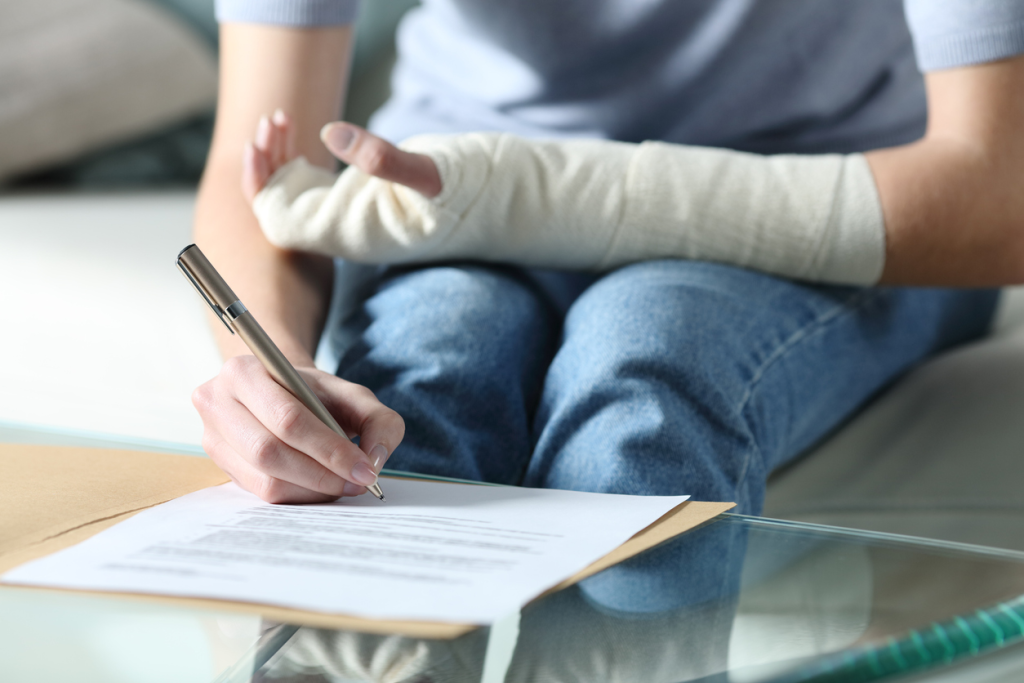A personal injury can significantly impact various aspects of your life, including your physical well-being, emotional state, and financial stability. In Indiana, if you have been injured because of someone else’s negligence, you have the right to seek financial compensation for your damages.
Understanding the various strategies available for financial recovery is crucial in ensuring that you receive the compensation you deserve. Luckily, we will explore the top financial recovery strategies for personal injury victims in Indiana, providing valuable insights and guidance to help you navigate the process effectively.
Filing an Insurance Claim
One of the primary routes many victims will take for financial recovery is filing an insurance claim. For example, if you were injured in a car accident, you can attempt to seek compensation from the at-fault driver’s insurance company. Similarly, if your injury occurred on someone else’s property, you may be able to file a claim with the property owner’s liability insurance.
It is important to report the incident to the relevant insurance company as soon as possible and provide them with all necessary documentation, such as medical records, bills, and any other evidence of your damages.
Seeking Compensation for Economic Damages
Economic damages are the tangible financial losses you have incurred as a result of your injury. These damages can include medical bills, lost wages, and property damage. Seeking compensation for economic damages is crucial in recovering the financial losses you have experienced due to your injury. To support your claim for economic damages, it is important to gather all relevant documentation, such as medical bills, receipts, and pay stubs.
Providing detailed records of your medical treatments, including diagnosis, procedures, and costs, will help establish the extent of your medical expenses. Similarly, documenting your lost wages, including any missed workdays and reduced earning capacity, will demonstrate the financial impact of your injury. An experienced Fort Wayne personal injury lawyer can help assess the full extent of your economic damages and ensure that you pursue the maximum compensation available.
Pursuing a Personal Injury Lawsuit
In cases where insurance claims do not fully cover your damages or are denied altogether, pursuing a personal injury lawsuit may be necessary. A personal injury lawsuit enables you to seek compensation directly from the responsible party through the court system. To obtain a successful outcome in a personal injury lawsuit, you must establish that the other individual was negligent and that their lack of thought directly caused any injuries you have obtained.
Hiring a skilled personal injury attorney is key in building a strong case, gathering evidence, and presenting your claim effectively in court. They will guide you through the legal process, handle the complexities of the case, and advocate for your rights to ensure that you receive fair compensation for your injuries and damages.
Pursuing Non-Economic Damages
Non-economic damages refer to the intangible losses you have experienced as a result of your injury, such as pain and suffering, emotional distress, and loss of enjoyment of life. While non-economic damages are not easily quantifiable, they are just as important as economic damages in recognizing the full impact of your injury. Indiana law allows personal injury victims to seek compensation for non-economic damages.
However, determining the value of non-economic damages can be challenging, as it requires considering various factors such as the severity of the injury, the duration of the recovery period, and the long-term impact on your quality of life.
Considering Punitive Damages
In certain cases involving particularly reckless or intentional conduct, punitive damages may be awarded. Unlike economic and non-economic damages, which are solely made to compensate the victim, punitive damages are intended to punish the negligent individual and deter similar behavior in the future.
Indiana law sets specific criteria for the award of punitive damages, and they are generally only granted in cases involving gross negligence, willful misconduct, or malicious intent. Pursuing punitive damages requires strong evidence and a thorough understanding of the legal requirements.
Negotiating a Settlement
In most personal injury cases, the parties involved may reach a settlement agreement before going to trial. A settlement is a voluntary agreement in which the responsible party agrees to compensate the injured party in exchange for the injured party’s agreement to drop the lawsuit. Negotiating a fair settlement requires careful consideration of all your damages and the strengths and weaknesses of your case.
Recovery Financially, Easily!
In conclusion, pursuing financial recovery after a personal injury in Indiana requires a strategic approach and a thorough understanding of the available options. Filing an insurance claim, pursuing a personal injury lawsuit, seeking compensation for economic and non-economic damages, considering punitive damages, and negotiating a fair settlement are all crucial strategies for maximizing your financial recovery. By following these strategies and seeking professional legal representation, you can navigate the complex landscape of personal injury law and work towards obtaining the compensation you deserve.

